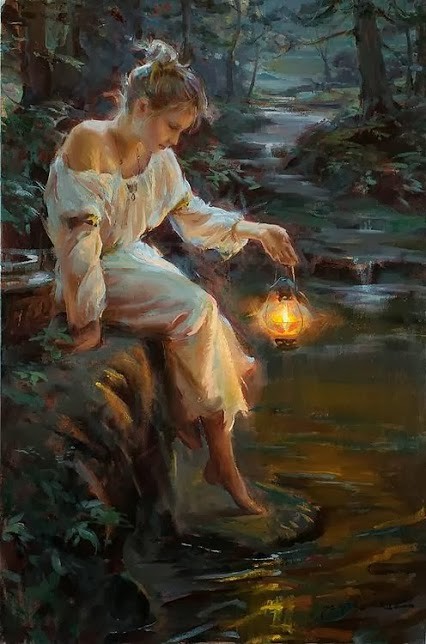Kiss the Rain - Bevani Flute
Original Music:yiruma

Daniel Gerhartz Art
To express desires, longings, ecstasies, prophecies and passions in form and color; to put love, hope, heroism and triumph in marble; to paint dreams and memories with words; to portray the purity of dawn, the intensity and glory of noon, the tenderness of twilight, the splendor and mystery of night, with sounds; to give the invisible to sight and touch, and to enrich the common things of earth with gems and jewels of the mind -- this is Art.
Every brain is a gallery of art, and every soul is, to a greater or less degree, an artist. The pictures and statues that now enrich and adorn the walls and niches of the world, as well as those that illuminate the pages of its literature, were taken originally from the private galleries of the brain.
The heart is softened by the pathos of the perfect.
Art in its highest forms increases passion, gives tone and color and zest to life. But while it increases passion, it refines. It extends the horizon. The bare necessities of life constitute a prison, a dungeon. Under the influence of art the walls expand, the roof rises, and it becomes a temple.
Art creates, combines, and reveals. It is the highest manifestation of thought, of passion, of love, of intuition. It allows us to look at an unmasked soul, to fathom the abysses of passion,to understand the heights and depths of love.

Art is not a sermon, and the artist is not a preacher. Art accomplishes by indirection. The beautiful refines. The perfect in art suggests the perfect in conduct. The harmony in music teaches, without intention, the lesson of proportion in life. The bird in his song has no moral purpose, and yet the influence is humanizing. The beautiful in nature acts through appreciation and sympathy. It does not browbeat, neither does it humiliate. It is beautiful without regard to you.

Art creates an atmosphere in which the proprieties, the amenities, and the virtues unconsciously grow. The rain does not lecture the seed. The light does not make rules for the vine and flower.

Art cultivates and kindles the imagination, and quickens the conscience. It is by imagination that we put ourselves in the place of another. When the whigs of that faculty are folded, the master does not put himself in the place of the slave; the tyrant is not locked in the dungeon, chained with his victim. The inquisitor did not feel the flames that devoured the martyr. The imaginative man, giving to the beggar, gives to himself. Those who feel indignant at the perpetration of wrong, feel for the instant that they are the victims; and when they attack the aggressor they feel that they are defending themselves. 
Art civilizes because it enlightens, develops, strengthens, ennobles. It deals with the beautiful, with the passionate, with the ideal. It is the child of the heart. To be great, it must deal with the human. It must be in accordance with the experience, with the hopes, with the fears, and with the possibilities of man. No one cares to paint a palace, because there is nothing in such a picture to touch the heart. It tells of responsibility, of the prison, of the conventional. It suggests a load -- it tells of apprehension, of weariness and ennui. The picture of a cottage, over which runs a vine, a little home thatched with content, with its simple life, its natural sunshine and shadow, its trees bending with fruit, its hollyhocks and pinks, its happy children, its hum of bees, is a poem -- a smile in the desert of this world.
No comments:
Post a Comment